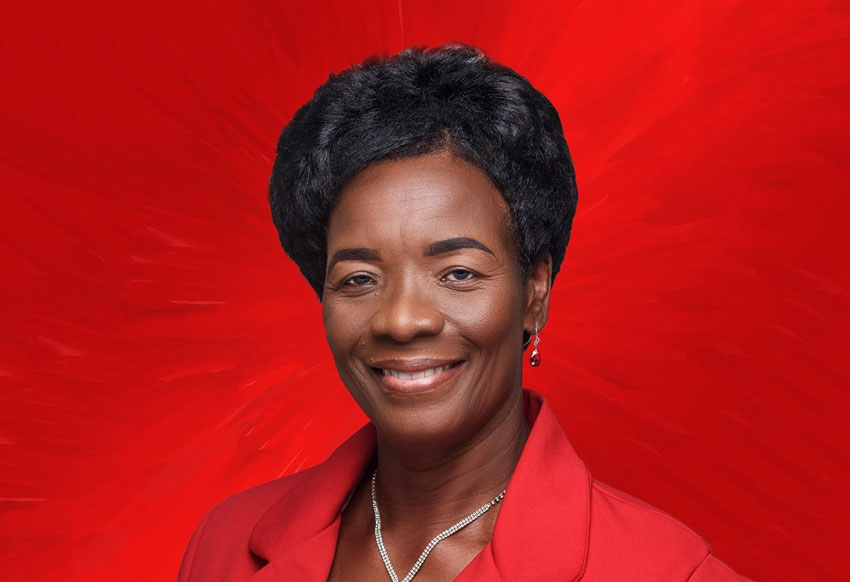Social activists and human rights advocates have long been speaking out against domestic violence and calling on the authorities to seriously address the issue – and now, the government plans to put in stringent measures to adequately deal with the matter.

Gender Affairs Minister Dr. Virginia Albert-Poyotte has disclosed that the government will look to enforce legislation to safeguard persons against acts of domestic violence and abuse – and to provide a safety net for depraved victims.
The Domestic Violence Bill is due to be presented at next week’s parliamentary sitting. Interestingly, the tabling of the Domestic Violence Bill will coincide with the observance of International Women’s Day, celebrated annually on March, 8, and will this year be held under the theme: “Gender Equality today for a Sustainable Tomorrow.”
At a press briefing on Wednesday and as a prelude to the discussions on the bill amongst legislators, the minister, spoke to reporters concerning the wider parameters of the revised bill and its implementation.
“Women are the bigger victims, we have a larger percentage of women who happen to be victims of domestic violence,” declared Dr. Poyotte, as she highlighted the pitfalls associated with gender-based violence.
She explained that domestic violence occurs in the home, “whether it is a man that’s the victim or whether it is a woman or a child”.
Dr. Poyotte asserted: “So, our women in Saint Lucia along with the men will celebrate this big achievement, in that we are going to tighten the legislation to protect human beings that live in a domestic dwelling.”
The minister noted that more than 25 years ago, efforts were already being made to address the domestic violence issue, but the matter did not result in a concrete resolution. Fast forward to 2016, and proposals were presented to parliament for discussion but nothing materialized.
Dr. Poyotte told reporters that upon examination of regional legislation, the proposed bill was pushed to the forefront of the agenda to effect constitutional modifications in the Caribbean.
“We have the definition of domestic violence and now we have broadened it, to include a wider range, a bigger definition, and different kinds of conduct,” the minister explained. “So we have added new conducts to that. For instance…conducts will include physical abuse or threats of physical abuse, we have added sexual abuse and even the threat is a form of abuse.”
Dr. Poyotte spoke also of verbal abuse, psychological abuse, cohesion, molestation, arbitrary deprivation of liberty, or forceful confinement. She noted that to address ‘modern challenges’, other issues to be dealt with will include economic abuse, harassment, stalking, and cyber-stalking to strengthen the legislative agenda whereby persons will be held responsible for their misdeeds.
The minister added, “We have broadened and refined the way the police handle the matter …since before it was limited and the police did not have much scope in pressing charges and arresting, and restraining and effecting restraining orders.
“Now, we have put in exactly what contains in the act, and the police are happy that it’s very clear on what they have to do.”
The Domestic Violence Bill 2022 is expected to champion the cause of women, men, and children who may unwittingly fall prey to as victims of domestic violence in an unconducive environment.
While noting that there will be no gender disparity, social or class strata impediments, Dr. Poyotte said: “Now that we have broadened it, it does not leave much room for certain persons to maneuver and escape.”
In the meantime, local activists including members of the LGBT community have welcomed the initiation of the Domestic Violence Bill, stating that the process should be undertaken in its entirety to add ‘more teeth’ to the proposed legislation.
Looking forward with optimism to providing law enforcement agencies the full latitude to apprehend and prosecute perpetrators of domestic violence, the minister asserted: “So we have the final document ready for broad circulation, the law will stand against domestic violence.”













